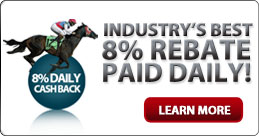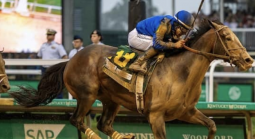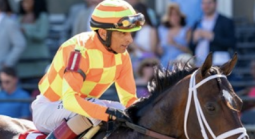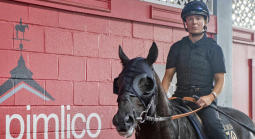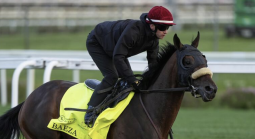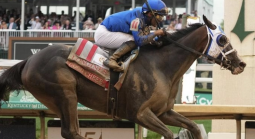Why Boycott Churchill Downs? Top Handicapper Gives the Skinny
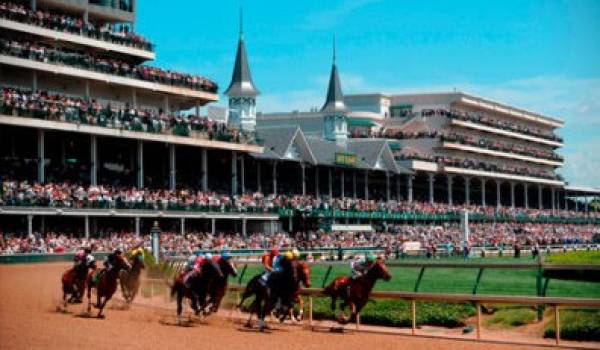
With the world's most famous horse race--the Kentucky Derby--just days away, it's no surprise that the event is all over the news of late.
But not all the news is good news.
On the eve of next Saturday's big race, talk is heating up about a boycott of Churchill Downs, the world-famous Louisville, Kentucky track where the iconic race is annually held.
So what's all the fuss about?
Gambling911.com on Sunday spoke with one of the Internet's top horse racing handicappers, Mike Dempsey of TurfNSport.com, to find out what's really going on.
Here is a transcript of that interview:
Gambling911.com: Please explain, in simple terms so non-racing fans can understand, what the issue is all about. What did Churchill Downs do and why should there be a boycott?
Mike Dempsey: Churchill Downs raised the takeout, or vig, from 16% to 17.5% on win, place and show wagers. and from 19% to 22% on exotic wagers, to help supplement purses. Most horseplayers feel the takeout is already too high, and it is driving players from the game, or they wager less. Many are betting more on sports or playing poker for their gambling fix, because the cost of playing, the takeout, is much lower. For every $100 wagered into the Exacta Pool, only $78 is returned to players. That makes it really tough to be profitable. Horseplayers were also not happy to find out that key executive compensation at Churchill Downs jumped from $8.2 million in 2012 to $27.9 million in 2013, and that Churchill Downs spent $12 million on a new video board.
G9: Realistically, what are the chances a boycott will be effective?
MD: Whether the organized boycott is effective or not, and I think it will to some degree, handle is going to decrease at Churchill Downs. You can’t keep taking money out of horseplayer’s pockets at these high rates and expect us to be profitable and keep playing.
G9: Is there anything else that can be done instead of or in addition to a boycott that would help your cause?
MD: Horseplayers just have to be more price-sensitive. It is their bottom line. Some casual players are unaware of takeout rates, but they are now leaving the track with less money, and that means they might not come back. On most days there are a dozen or more tracks running. Bettors need to know what racetracks are the most horseplayer friendly. The Horseplayers Association of North America has ranked them.
G9: Regardless of whether the boycott is successful, how do you see the future of horse racing in the USA over the next five or ten years?
MD: Handle and popularity are only going to decrease. Many racetracks subsidize their purses through casinos now, but they have not made an effort to lower takeout or market the game. They are more interested in slots and table games. It is slowly killing the game as we know it.
G9: If you were in charge of all horse racing in the USA, what three changes would you make that you think would most benefit the sport?
MD: Just three? There really are countless issues that need to be addressed by the industry. Right now it is dysfunctional. These are the top three. First, the game has to do a better job of marketing the gambling aspect. It is LEGAL to wager from home! The industry needs younger players, and they need access to good information and it has to be easy to understand and the costs need to be lower. Second, we need drug reform, stronger penalties for cheaters and a more organized plan on what to do with retired horses. In order to accomplish many of these things we need a central office like other sports. There is nobody calling the shots in the industry. Each state is on their own, and there are different rules throughout the U.S. Third, takeout just has to be lowered. I know many gamblers that only wager on big events like the Derby or the Breeders’ Cup. They wager on sports with a 5-10% vig the rest of the year. Why would they want to wager on horses at rates that are double that?
G9: Can you give our readers any insight into who you like to win the Kentucky Derby?
MD: As far as whom I like in the Derby, I keep an open mind until all the works are in and the post positions are drawn, which is Wednesday. California Chrome is obviously the most talented colt going into the race, but his price is going to be on the light side, and I am going to look for more value.
G9: Any final thoughts?
MD: I am handicapping and betting on Oaks and Derby Day but not on any of the other days of the meeting. I am encouraging my readers and subscribers to do the same. It will be the first time I have not provided handicapping reports or wagers on the Churchill meeting, except for Oaks and Derby.
By Tom Somach
Gambling911.com Staff Writer









